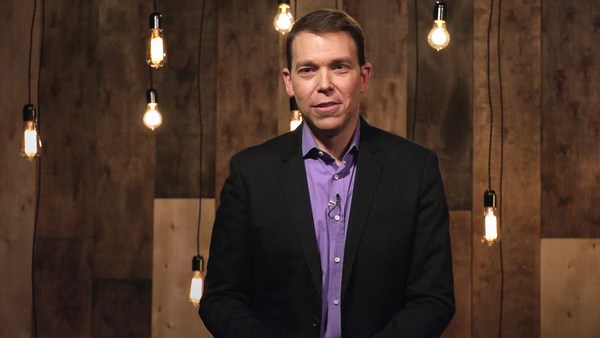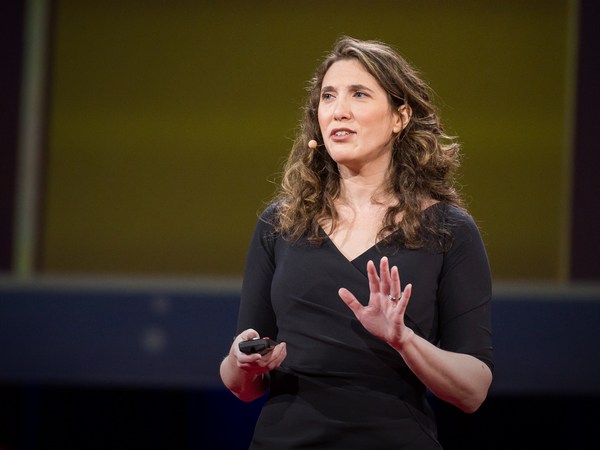Every parent is a working parent, whether they have a job outside of the home or not.
[The Way We Work] When Angela shows up at the office, know that Angela has been up for at least three hours, had her hand covered in human excrement, unwedged a small person who has become lodged in between the washing machine and the wall, gotten down on her hands and knees and picked up oatmeal off the carpet. Domestic labor, which is what parenting is and everything that goes along with parenting, it’s not just taking care of a child; it’s keeping a household running, washing dishes, doing laundry, it’s keeping the schedule tight. We again assume that that work will be done by a wife who’s at home.
The reality has progressed beyond where we’re at policy-wise. Most people need multiple sources of income, women want to work outside of the home -- we’re still expected to do all of the same things. And so now we outsource a lot of that parenting work to other women, and mainly women of color. We don’t give it financial, cultural value, and so we don’t see it as real work.
Care is really the backbone of our society. That work is what makes all other work possible. So how should we support parents in the workplace?
[Support family leave]
There are only two industrialized countries in the entire world that don’t guarantee some paid family leave, and the United States is one of them. We should be envying Ghana, Brazil, Turkey, Serbia, Japan, the United Kingdom, Norway, the Netherlands, Sweden -- we’re lagging behind the world on this. When I say paid family leave, I’m not talking about necessarily just newborn maternity leave. That includes paternity leave, all genders, families that are adopting and welcoming a new child into their home, people bringing foster children into their home, taking care of aging parents. You know, at some point in your life, someone that you love and care about is going to need help. You should have the right to take time to take care of them. People do their best work when they feel seen and supported by the people that they work for. It’s pretty simple.
[Listen to parents]
Being a parent is often seen as a weakness in the workplace. You come back and people make a lot of assumptions about you. You're not invited to go on work trips because assumptions are made that you don’t want to do that, or you can’t. And that can be really disempowering to people, and it’s really discouraging and it makes them -- in a period of time that’s already stressful -- can make you feel even worse.
[Talk to parents]
Asking a coworker about how things are going at home or with their kid, making people feel like they don’t have to hide that. “What’s up with your two-year-old?” Ask to see a picture of their child.
[Be flexible]
For parents, the hours between 5-8pm are really crucial. It’s sometimes the only time you really have with your kids. You’re often running to pick them up somewhere or to relieve someone from doing childcare. I would much rather send a few emails at 8:30pm than be on a call at 5pm. And so I think emphasizing and creating a culture of work where it’s the work that gets done, the work is what matters, the end result is what matters, as opposed to tracking time in a traditional way, and opening up the lines of communication around that can be really beneficial. Letting a coworker know that you have their back if they want to say that 4:45 doesn’t work for them as a meeting time, that you’ll step in and say that you can’t do it either, right? Just something to show solidarity.
[Oh yeah ... ]
One other thing, as a former breastfeeding mother in an office place -- a pumping mother -- I should say that if you want to clean out your office fridge every now and then, that is a really beautiful thing to do for a pumping mother, because I used to do that in my office. I would put my little cooler that had breast milk amid like year-old bottles of salad dressing, pad thai that had become petrified, just gross stuff. And no one should have to do that, right? Again, a very, very small thing that makes a big difference in someone’s life.
In striving to be as efficient as possible, as achieving, as productive as possible, we’ve drifted away from this notion of care and parenting being important work. But we need to talk about these things and bring parenting and family life out into the open, because we can't fix problems that we don't see. We can’t fix problems that we don’t talk about. It really doesn’t have to be this hard and we can do much more to support people.





